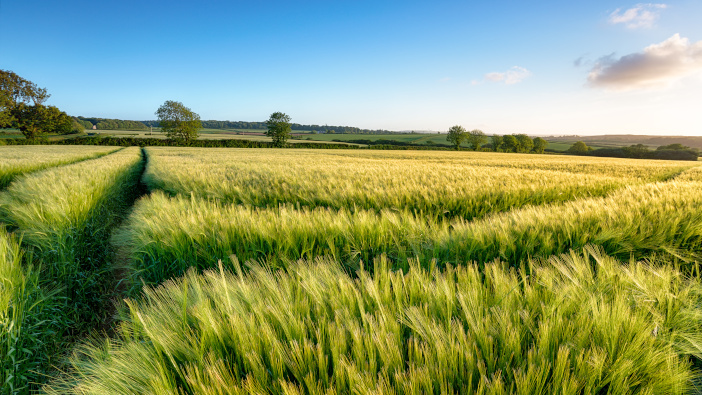Last week the Government announced a consultation on land use as it aims to build 1.5m new homes over the next parliament, enhance UK food security and boost green energy production and conservation.
Initial reports ahead of the 12-week consultation suggest that high-value farmland will be protected but that between 1% and 9% will have to be converted to woodland or biodiversity plots.
In a statement released ahead of its official response, the AHDB said that the analysis quoted in the consultation would need to be carefully examined, with consideration of the long-term effect on food security and the financial impact on farmers.
NFU president Tom Bradshaw said: “The UK is a small island nation and there are huge demands being made on land including housebuilding, requirements for biodiversity net gain, leisure and recreation and critical national infrastructure.
“With competition for that land ever increasing, and to deliver on the government commitment that food security is national security, we must have a land use plan in place, underpinned by sound science and evidence, that has British food at its heart and ensures we make the best use of our most productive agricultural land.
“Our countryside needs to remain a multifunctional, dynamic space; one that creates a thriving, profitable farming industry and enables Britain’s farmers and growers to continue producing more sustainable, affordable homegrown food while carrying out important work in caring for the environment, creating more jobs and supporting greener energy security.
“Alongside, we need a trade policy to match this ambition with a robust system of core standards for food imports that protect farmers and consumers from imported food that would be illegal to produce here. That’s why we are also asking for targets for British food production, just as the government has rightly legislated for targets on the environment.
“Over the past 18 months, the UK farming industry has taken a battering. Volatile input costs, commodity prices on the floor in some sectors, a reduction in direct payments, one of the wettest periods in decades, and a brutal Budget delivered by this government. All have left their mark and have put homegrown food production under serious pressure. It’s imperative this framework does not further restrict farmers’ ability to produce the nation’s food.
“To ensure farming, as the sector that provides the raw ingredients to the nation’s largest manufacturing sector, food and drink, which is worth more than £140 billion to the nation’s economy, continues to contribute to this government’s economic growth ambitions, we need investment. Investment to grow the farming sector and see it deliver on its potential for increased productivity. Above all, we need transparency, engagement and a government that is willing to listen. Only then will we get a land use framework that delivers for consumers, for the environment and for British agriculture.
“We will of course examine the government consultation in detail once it is available and ensure the 44,000 farmer and grower members of the NFU have the opportunity to feed back.”
The Country Land and Business Association (CLA) raised concerns over the framework, and possible future prescriptive measures. President Victoria Vyvyan explained:
“Whenever the state gets involved, its tendency is to only become ever more prescriptive. Today, the framework might be light touch, but tomorrow it won’t be. Government must build safeguards into the policy to prevent mission creep, or else it is entirely possible that in years to come, the man from the Ministry will be telling farmers what they are and aren’t allowed to grow, plant and rear on their land. That will be unacceptable.
“Land managers are central to the delivery of the government’s policies for climate, nature, food security,housing and energy, and are in the best position to know what is right for their land and business. A land use framework must not stifle farming or environmentalinnovation, or prevent rural development and business diversification.
“To be most effective, the framework should remain separate from planning policy, with links made through the Local Nature Recovery Strategies (LNRSs) currently being developed across the country. It will achieve the best outcomes by collaborating with land managers to provide economically viable options for land use.
“The review needs to be evidence-based and focus on improving existing processes so that it encourages but does not prescribe change.”



